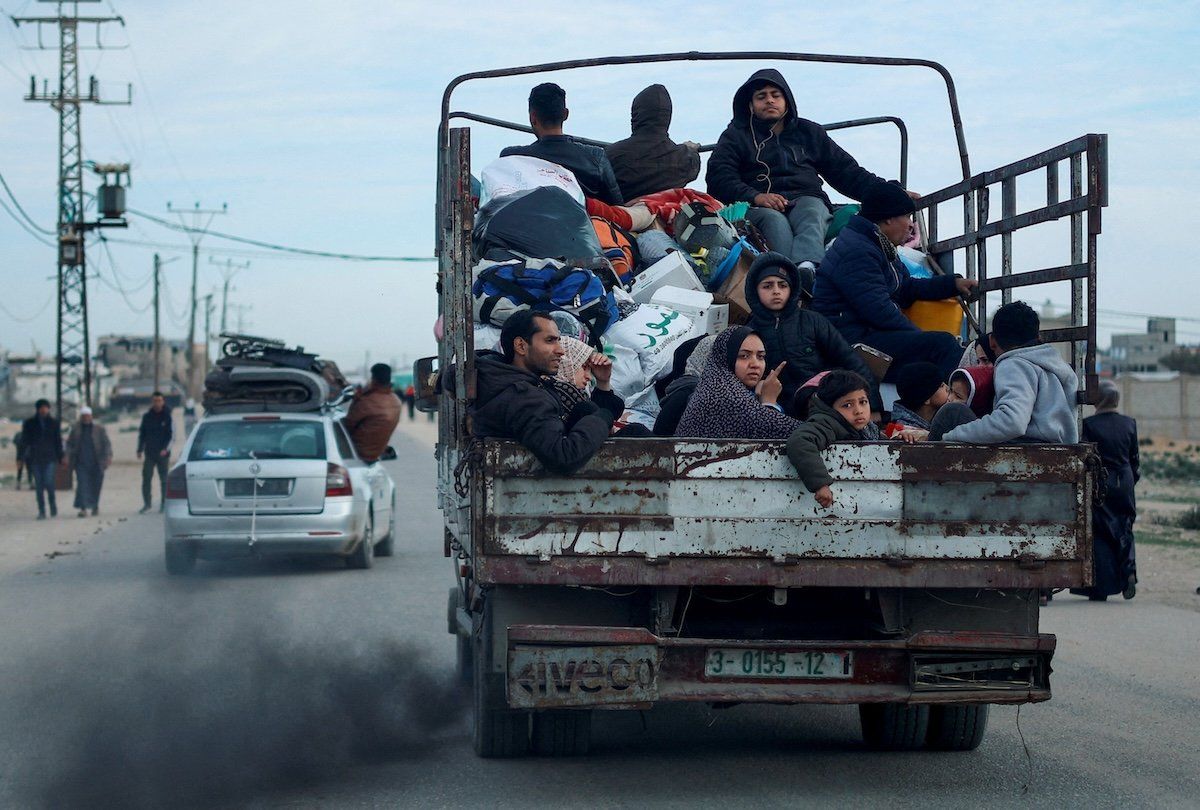Palestinians leave Rafah in fear of an Israeli military operation in the southern Gaza Strip, on Feb. 13, 2024.
Israel launched airstrikes in Lebanon on Wednesday, killing at least 10 civilians, in response to a suspected Hezbollah rocket attack that killed an Israeli soldier. Hezbollah on Thursday said Israel would "pay the price for these crimes."
The US raised alarm about the potential for escalation and pushed for a diplomatic resolution to the tensions.
Israel and Hezbollah — a powerful Iran-backed militia group that collaborates with Hamas — have traded fire for months as the war in Gaza fuels wider tensions, raising concerns that Israel could end up in a two-front war.
Israel's recent airstrikes “reflect domestic political and social pressures to respond more forcefully to Hezbollah,” says Sofia Meranto, a Middle East analyst at Eurasia Group.
And there’s likely to be more where that came from. Hezbollah chief Sayyed Hassan Nasrallah warned Tuesday that attacks on Israel end only “when the shooting stops in Gaza.” However, he has previously signaled reluctance to face a full-scale war with Israel, which could inflict huge pain on Lebanon more broadly.
Meanwhile, as Israel prepares to invade the southern Gaza town of Rafah, where 1.4 million displaced Palestinians are sheltering, the US, Egypt, and Qatar are scrambling to establish a new truce. So far, both Hamas and Israel have rejected the terms.